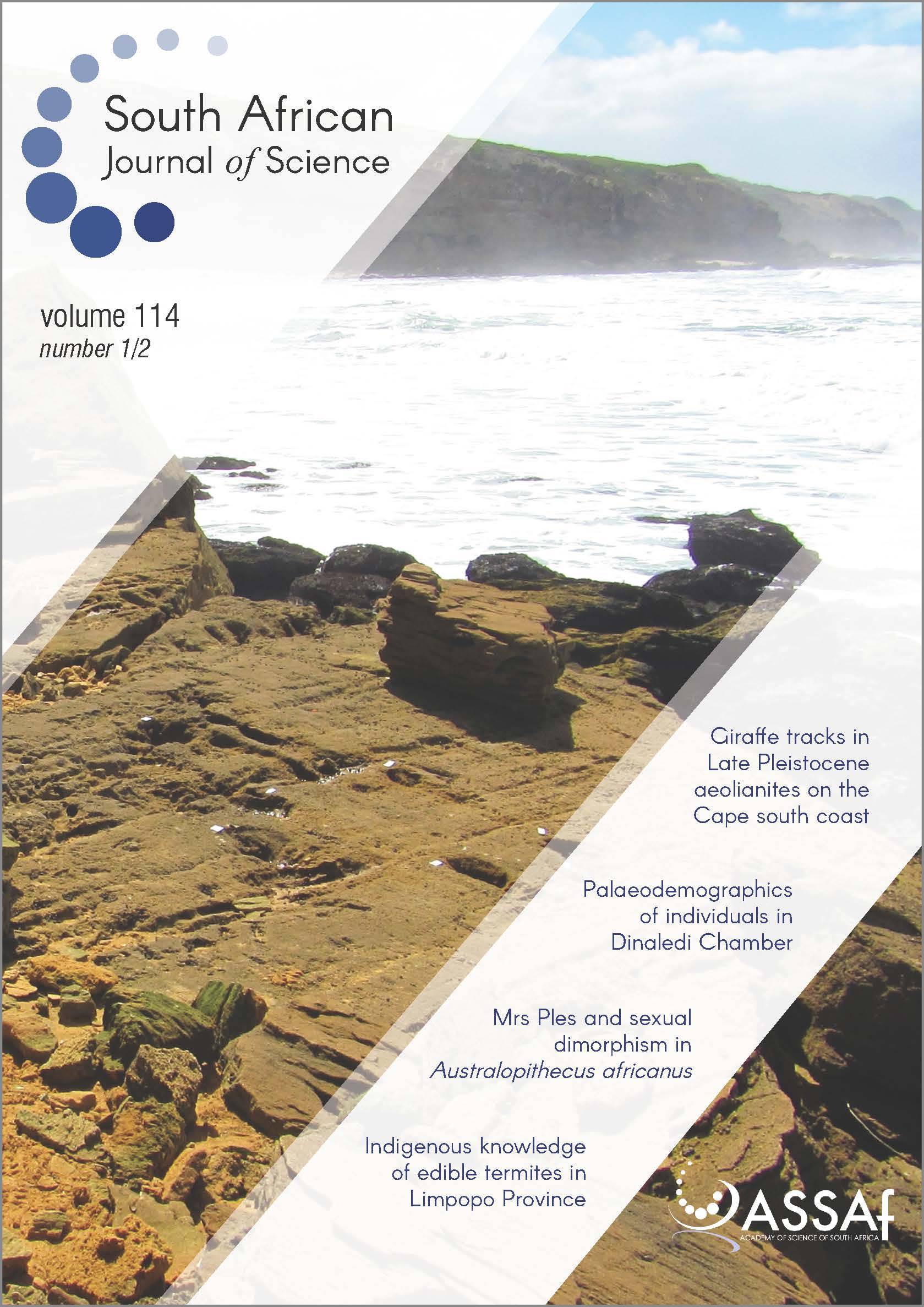Human uses and indigenous knowledge of edible termites in Vhembe District, Limpopo Province, South Africa
DOI:
https://doi.org/10.17159/sajs.2018/20170145Keywords:
insects, entomophagy, harvesters, marketers, Macrotermes spp.Abstract
Termites are a good food source, being rich in proteins, fats, vitamins and many essential mineral nutrients, and thus provide food security for poor households. We report on a survey conducted in the Vhembe District Municipality of Limpopo Province, South Africa, to identify edible termite species and find out how they are harvested, prepared, graded, packaged and marketed. We also looked at the socio-economic factors of the harvesters, marketers and consumers. Using a structured questionnaire, 104 individuals were interviewed from 48 villages. Most of the harvesters were over the age of 60 years but termites are consumed by the whole family. The results of the survey revealed that only three termite species are consumed: soldiers of Macrotermes falciger (89.90%), M. natalensis (8.08%) and M. michaelseni (2.02%). The preferred method of preparation was frying (77.55% of the respondents). At least 80.77% of the respondents indicated that some religions have restrictions on termite consumption but no ethnic restrictions were reported. The income derived from selling termites was estimated to range from ZAR2040 to ZAR17 680 per annum between April 2015 and April 2016. The results of this study showed that edible termites contribute significantly to the livelihoods of many rural families and this indigenous knowledge should be passed on to younger generations. Research on the sustainability of termite harvesting is recommended.
Significance:
- Termites are sources of food with high economic and social importance, and are easily accessible by the poor.
- Studies have been conducted on edible termites in many African countries, yet comparatively little is known about edible termites in South Africa.
- Preservation of indigenous knowledge used during harvesting and processing needs to be prioritised.
Published
Issue
Section
License

All articles are published under a Creative Commons Attribution 4.0 International Licence
Copyright is retained by the authors. Readers are welcome to reproduce, share and adapt the content without permission provided the source is attributed.
Disclaimer: The publisher and editors accept no responsibility for statements made by the authors
How to Cite
- Abstract 4445
- PDF 2402
- EPUB 313
- XML 374













.png)